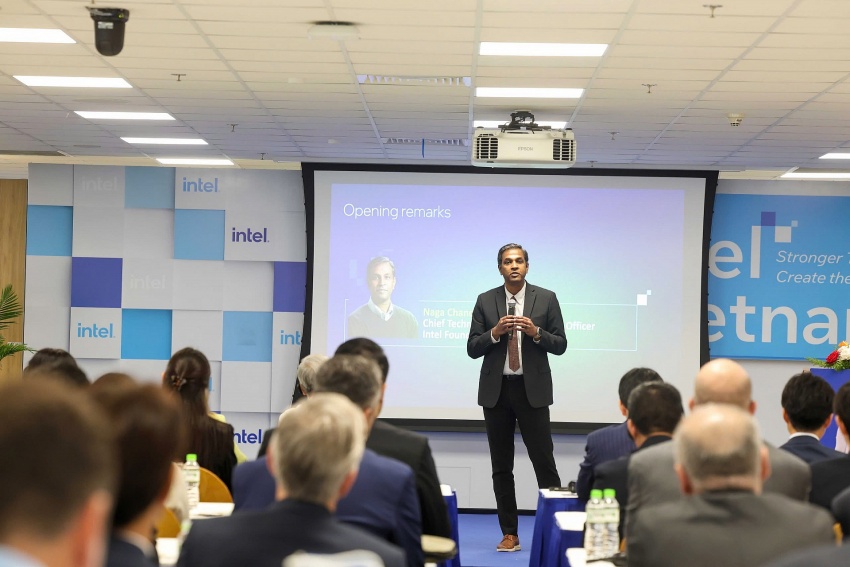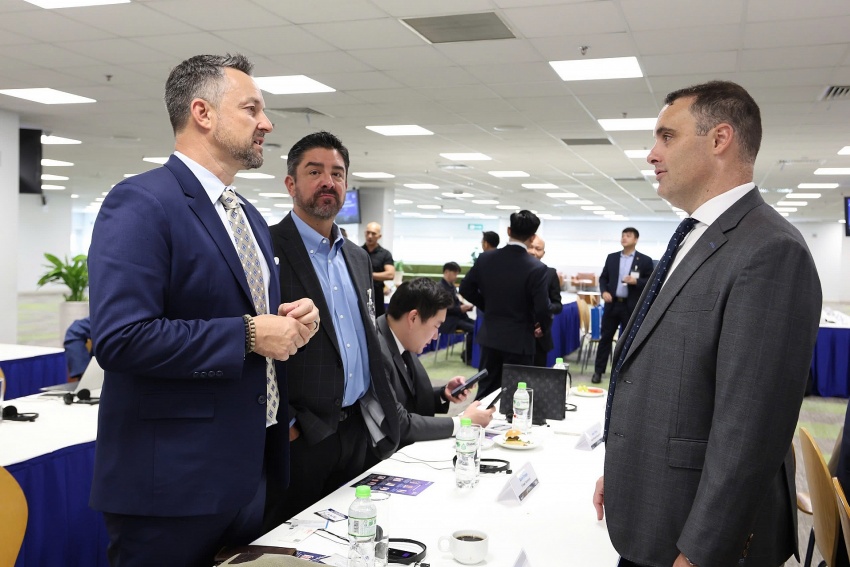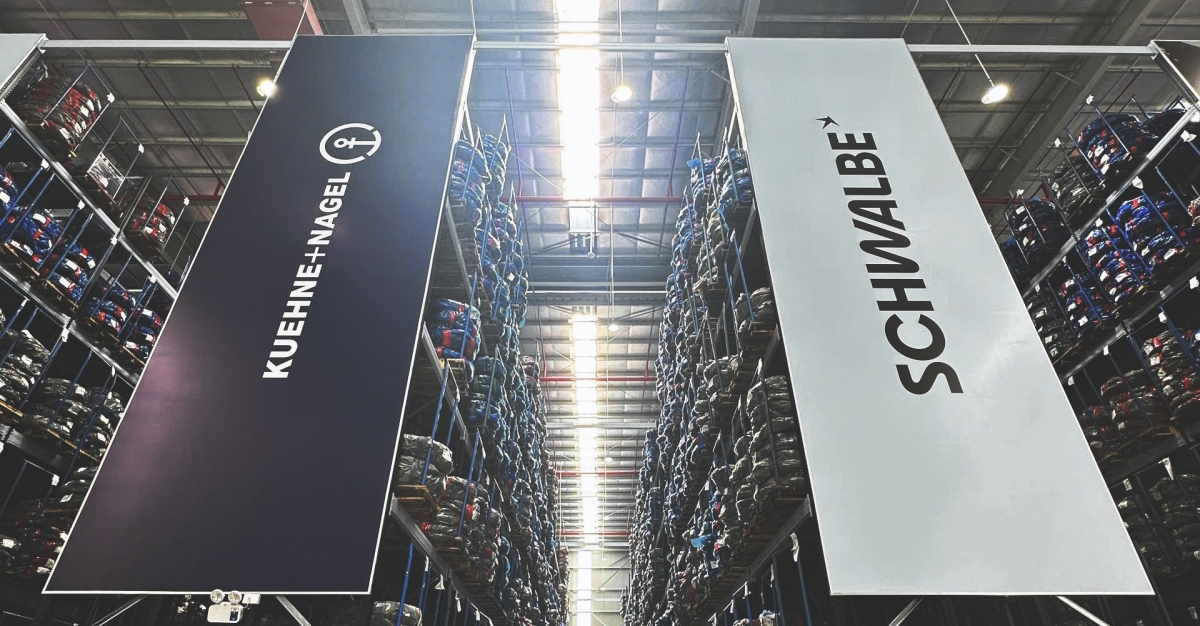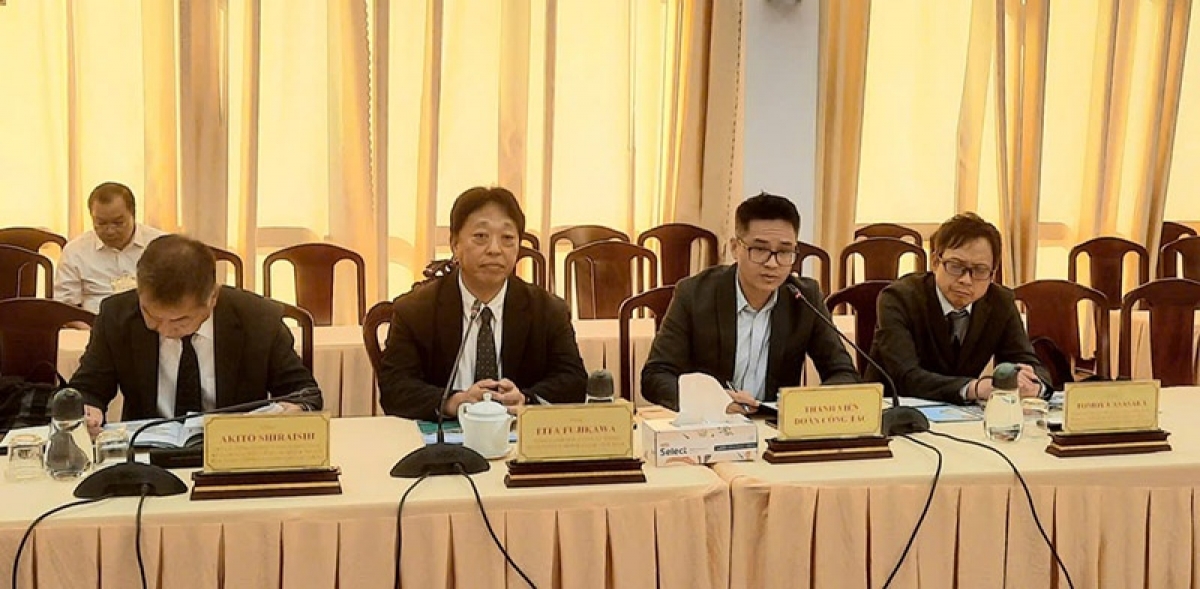INTERNATIONAL INVESTMENT
AND PORTAL
Talking with VIR at the Intel Strategic Parts Supplier Summit on April 1 in Ho Chi Minh City, Viet Tran, CEO of Fab-9 Vietnam, an ancillary manufacturer that supplies and repairs circuit boards for Intel Vietnam, said that it took the company nearly 10 years to learn, research, and improve its product quality to become an Intel supplier.
“Becoming a supplier for Intel is not easy at all, especially for small businesses in Vietnam. Intel is a big company, so sometimes they only want to use companies that already have a relationship with them and rarely consider new companies,” said Viet.
He said that businesses aiming to become suppliers for Intel must meet very high standards such as human resources, machinery, and materials resources.
Currently, Fab-9 has nearly 100 customers, of which Intel's revenue accounts for about 30 per cent.
“We are running at 100 per cent of our capacity, so we need to increase that capacity to meet customer demand. However, almost all of our workers need to be retrained,” said Viet.
The Fab-9 facility was built in 2007 in Binh Duong province and specialises in printed circuit boards. It uses proven processes for high-value and reliable products and exports products to major markets such as the United States, the Philippines, Thailand, Singapore, Malaysia, Indonesia, Taiwan, and Belgium.
 Dr. Naga Chandrasekaran, executive vice president and CTO of Intel Foundry. Photo: Le Toan
Dr. Naga Chandrasekaran, executive vice president and CTO of Intel Foundry. Photo: Le Toan
According to Dr. Naga Chandrasekaran, executive vice president and CTO of Intel Foundry, Intel's Vietnam factory will reach the milestone of four billion products shipped this April.
“We are committed to supporting the development of the semiconductor supply chain in Vietnam. We recognise and appreciate the efforts of the Vietnamese government in developing infrastructure and creating favourable conditions for the semiconductor industry to continue to expand and develop,” said Chandrasekaran.
He added that since Intel Vietnam was established in 2006, the company has invested in and built a local supply network, and now has 600 partners.
“Through this conference, we hope to create a platform to continue to open new opportunities for suppliers, support human resource development, and promote innovation, thereby developing a great semiconductor ecosystem in Vietnam,” he added.
At the conference, many suppliers asked how they can become suppliers for Intel.
Dave Bloss, vice president of Intel Corporation in charge of global supply chain, said that Intel has support programmes to help businesses that want to become suppliers.
"In addition, Intel also cooperates with partners to train personnel and find talents for the company," Bloss added.
“One of the highlights of our bilateral relationship is our collaboration in the semiconductor and high-tech industries,” said US consul general Susan Burns. “The US has a strong commitment to supporting Vietnam’s semiconductor and high-tech development goals, and US companies in Vietnam, such as Intel, have demonstrated this support.”
“Gathering 40 suppliers, the Strategic Components Supplier Summit further reaffirms Intel and the US' commitment to building a strong local semiconductor supply chain. This is a prime example of how public-private partnerships can accelerate the growth of a local supply chain and support Vietnam’s high-tech vision,” she said.
Nguyen Ky Phung, head of Ho Chi Minh City Hi-Tech Park Management Board, said at the event, “Today is a testament to Ho Chi Minh City’s strategic vision in promoting international cooperation, and attracting investment in the high-tech sector, contributing to making Vietnam one of the world’s leading centres for manufacturing and exporting high-tech products. With the presence and investment of Intel, we believe in the development potential of the semiconductor industry in Vietnam,” said Phung.
“To further the development of the supply chain in Vietnam, we recommend that Intel Products Vietnam continues to build support programmes, train high-quality human resources, successfully build a network connecting businesses in the supply chain, and strengthen cooperation with state management agencies,” he said.
The Strategic Components Supplier Summit highlighted the growing economic and technological cooperation between Vietnam and the US, strengthening the bilateral relationship as the two countries celebrate the 30th anniversary of diplomatic relations in 2025.
The event played a key role in enhancing the competitiveness of domestic suppliers by connecting Vietnamese enterprises to the global semiconductor and high-tech supply chain. At the same time, the summit aimed to push investment and innovation to help position Vietnam as an important link in the high-tech sector.
To date, Intel has invested more than $1.5 billion in Vietnam and continues to expand its investment by upgrading factories and applying new technology.
 Suppliers talking about productions for Intel Vietnam. Photo: Le Toan
Suppliers talking about productions for Intel Vietnam. Photo: Le Toan


















